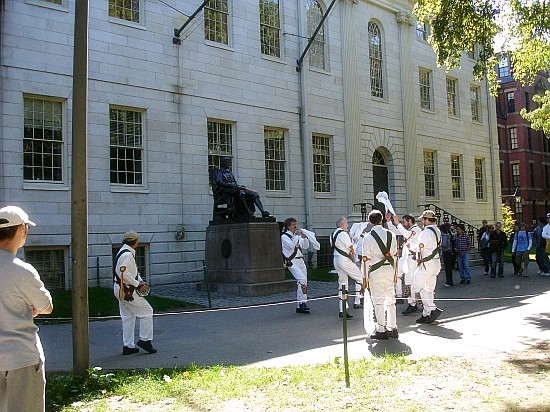Everytime I see young high school students clustering in front of the John Harvard statue, touching his sacred foot and taking pictures, I experience a slight envy. If only I had the chance to actually visit some universities before applying to them!
Even though I was set on going to college in the U.S. in my senior year of high school, I never considered actually flying there to visit some schools. Flight tickets from Singapore/China to the U.S usually have four-digit prices, and I simply could not invest this amount of money just for some sightseeing.
But I, like many students who attend high schools outside the U.S., did not understand that visiting a college is not just about sightseeing. There are so many aspects about a college that one simply cannot fathom from its pretty website, glossy brochures, or its profile on Princeton Review/U.S. News and World Report.
Visiting a college can be a great strategy for finding out the less obvious information about a school. However, for many international students, it is not practical to fly to the U.S. and tour its colleges. How do you choose which college to apply to/attend then?
Most people base their decisions on ostensible factors like ranking, faculty-to-student ratio, and the strengths of specific academic programs. But when taking all these into account, weighing institutions can still be a headache given the plethora of options available.
If you are in a serious dilemma about which college to apply to or attend, I suggest you consider another factor that parents and counselors tend to afford less attention to: happiness.
What leads to happiness during college?
From my personal experience, location can be key.
If you like the hustle and bustle of a big city and can’t survive without eating out or going shopping once in a while (in other words, if you are like me), then you should definitely choose a school that is located at or within commuting distance of a big city.
If you are the opposite, go for the likes of Cornell and Dartmouth and embrace nature.
No matter what, make sure to research the location of the school and transport options. Ask current students about how long it takes to get anywhere without a car. Seemingly unimportant things like mobility, proximity and convenience can be instrumental in determining the quality of your college experience. After all, this will be your home for four years.
One of the greatest sources of homesickness during college is your hometown food. If you are the type of people who is picky about the taste of everything that goes into your mouth, you should definitely inquire current students about their dining halls or check out college dining hall rankings. However, bear in mind that bad dining hall food can be remedied by a variety of restaurants (if affordable) – yet another reason that location can be so important. Even if you don’t consider yourself a gourmand, you should prepare yourself for becoming one.
College is a stressful time for most people, and things like studying and socializing takes up a lot of mental energy. Many students eat more comfort food just to keep themselves going. After a long night of paper-writing or problem-solving, you just want to treat yourself to an ice-cream or a cookie, or both. The satisfaction that eating produces will then translate itself into more motivation (hopefully).
Size is important, too. Small liberal arts colleges will offer a very different experience than large research institutions. Do you want to be at a school where you know almost everyone in your year, or one where you can meet new people every day?
Weather is a seemingly trivial factor that can have a surprisingly large impact on some people’s mood. The Northeastern (N.E.) states of America have great schools, but also unpredictable and (in some people’s opinions) sucky weather. If you get depressed easily on cold, snowy and wintry days, then you should probably go for sunny California or somewhere else in the south.
Talk to current students at your interested colleges, but always take their advice with a grain of salt. This is because current students are, without exception, biased towards their own schools. After all, they all have only attended ONE college, and will not have reliable firsthand knowledge of other schools. Their information on other schools will inevitably come from hearsay or short visits, and many hold grudges against schools that rejected them. Even if someone did his/her undergraduate studies in one school and graduate studies in another, they may still not hold a balanced opinion on the two schools, because most people tend to be more emotionally attached to the college where they spent their undergraduate years.
Ultimately, bear in mind that choosing a college is also about choosing a home.
After all, chances are that your happiness in the next four years will not be dependent on whether your college is ranked No. 32 or No. 33, but may well depend on the people you meet, the food you eat, and whether you are in the middle of nowhere.


